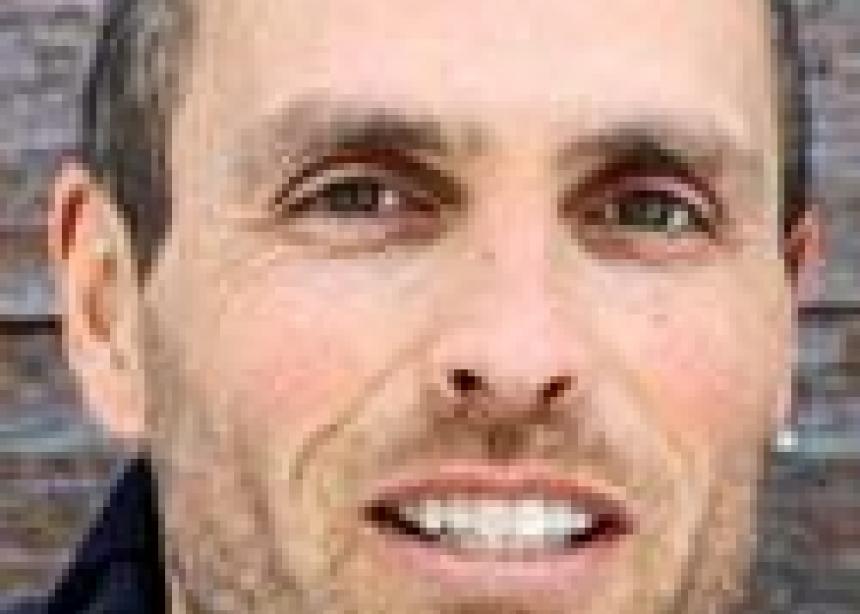Over the past 20 years I have dedicated much effort to advancing the relationship between Indigenous Peoples and the rest of us. I have lived in, worked with and written about various aboriginal communities. Currently, I work part-time for the Interchurch Council on Hydropower, which advocates for fair treatment of indigenous people affected by dams in Manitoba.
So it was ironic, in a way, that Chief Marcel Moody of Nisichawayasihk Cree Nation wrote an article for the Winnipeg Free Press last month in which he accused me of having a "paternalistic" attitude and "creating turmoil" in his community.
Employing a well-used refrain, he said, "We find it outrageous that Braun represents the people whose residential school policies helped to destroy the fabric of our communities."
His comments demonstrate that indigenous issues, like all important issues, are unavoidably messy.
Chief Moody was responding to an article in which I noted that the $1.7-billion hydropower dam, of which his first nation is part owner, is expected to lose many millions of dollars in the coming decade contrary to past predictions. I questioned our provincial utility's line that its series of new dams are a path to prosperity for northern Cree people. I was, on behalf of the Interchurch Council, presenting vital information not generally available to northerners or others.
It wasn't the first time I or our Council—of which Mennonite Central Committee is a member—felt compelled to say things that would irk some indigenous leaders. In 2012, I wrote in the Free Press about a hydro-affected community that received $92 million in negotiation costs from Manitoba Hydro, but was still mired in poverty, with little indication the money had helped the majority of the community. Our organization deliberated over that piece, compelled in the end by a duty to reflect concerns we heard from community members. There was no direct response that time.
Earlier that year I wrote about an unusually quiet $58-million agreement between Manitoba Hydro and another Manitoba first nation. I questioned the secrecy and timing of the deal. Again, I was responding to concerns our group had heard from members of that first nation.
In all these cases we directed our critique more at Manitoba Hydro than the first nations, but the latter will have surely found the attention unwelcome.
I also got reprimanded for my essay in Buffalo Shout, Salmon Cry (Herald Press, 2013), in which I pointed out that, while many aboriginal people consider themselves defenders of Mother Earth, many others are active proponents of massive oil sands, hydropower, mining and liquefied natural gas projects. The piece also discussed the aggressive push-back I and others received from first nations with hydropower interests a decade ago. It's all awkwardly unavoidable stuff. The aboriginal responder in the book accused me of being closed-minded and simplistic.
Supporting Indigenous Peoples does not mean reserving all scrutiny. Supporting any cause should not come at the cost of glossing over nuances, complexities and contradictions. We need to have the tough conversations. And all governments must be subject to public accountability.
There will always be arguments against open critique of marginalized people: that such critique fuels prejudice, that official indigenous voices should never be contradicted, that historic power imbalances should inhibit white folk from saying anything.
These are worthy of consideration. The difficulty is that I just don't see avoidance of messiness as an ultimate good to Indigenous Peoples or society. Silence is not the solution.
And people who disagree are, of course, free to say so, as Moody did. That is part of the point: freedom of speech, freedom of the press and open exchange of ideas.
It will be messy, but that's okay. And it’s okay for the church to be in the middle of it.
I certainly don't enjoy getting slammed in front of tens of thousands of Free Press readers—especially given the way I was associated with things said by unnamed others—but there is something much bigger at play: vigorous and open grappling with essential issues. These things simply have to be aired and, if someone sees fit, refuted.
Some of the critique I received back was instructive, as always. And as a result of speaking up, our Council has learned considerably more about Nisichawayasihk Cree Nation and the dam it has a stake in. Some people in the community and public have, too. That is critical.
The take-home lesson for me is this: Life is messy, jump in. Do so with appropriate trepidation, genuine care and openness to correction, but jump in.
--Posted June 4, 2014



Add new comment
Canadian Mennonite invites comments and encourages constructive discussion about our content. Actual full names (first and last) are required. Comments are moderated and may be edited. They will not appear online until approved and will be posted during business hours. Some comments may be reproduced in print.